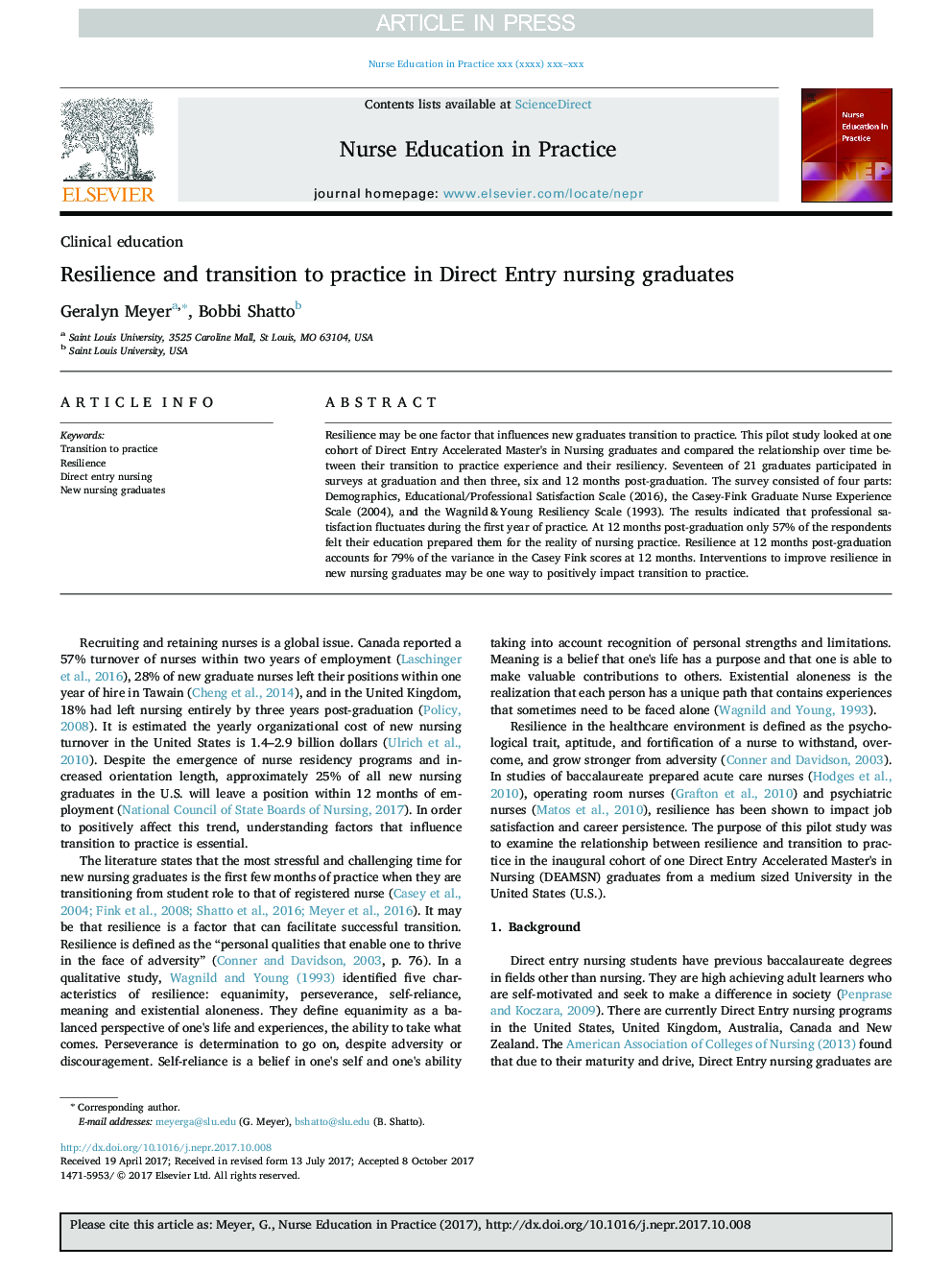| Article ID | Journal | Published Year | Pages | File Type |
|---|---|---|---|---|
| 6846427 | Nurse Education in Practice | 2018 | 4 Pages |
Abstract
Resilience may be one factor that influences new graduates transition to practice. This pilot study looked at one cohort of Direct Entry Accelerated Master's in Nursing graduates and compared the relationship over time between their transition to practice experience and their resiliency. Seventeen of 21 graduates participated in surveys at graduation and then three, six and 12 months post-graduation. The survey consisted of four parts: Demographics, Educational/Professional Satisfaction Scale (2016), the Casey-Fink Graduate Nurse Experience Scale (2004), and the Wagnild & Young Resiliency Scale (1993). The results indicated that professional satisfaction fluctuates during the first year of practice. At 12 months post-graduation only 57% of the respondents felt their education prepared them for the reality of nursing practice. Resilience at 12 months post-graduation accounts for 79% of the variance in the Casey Fink scores at 12 months. Interventions to improve resilience in new nursing graduates may be one way to positively impact transition to practice.
Keywords
Related Topics
Health Sciences
Nursing and Health Professions
Nursing
Authors
Geralyn Meyer, Bobbi Shatto,
